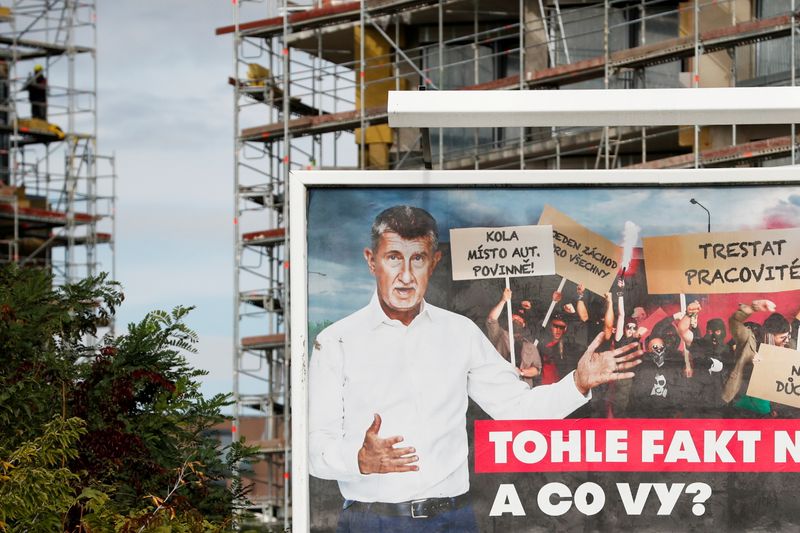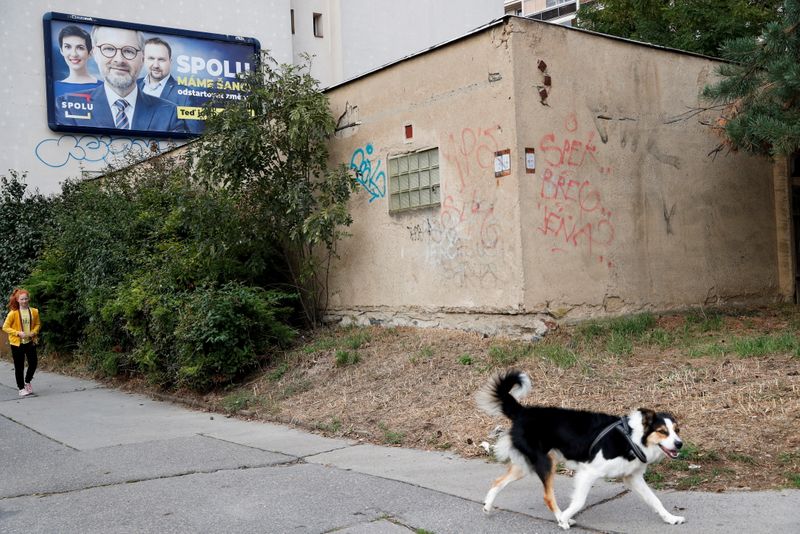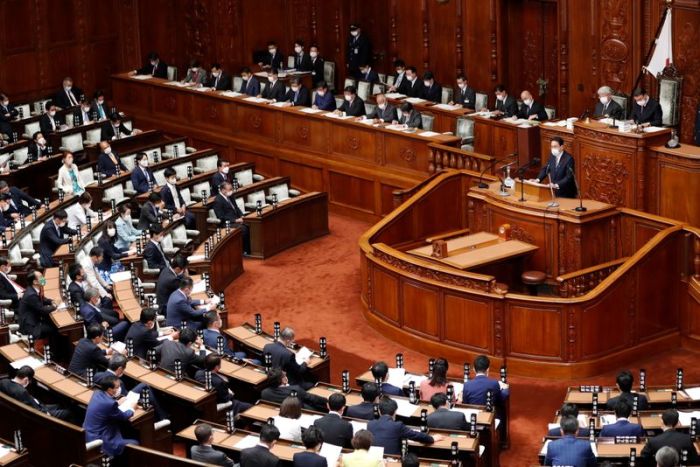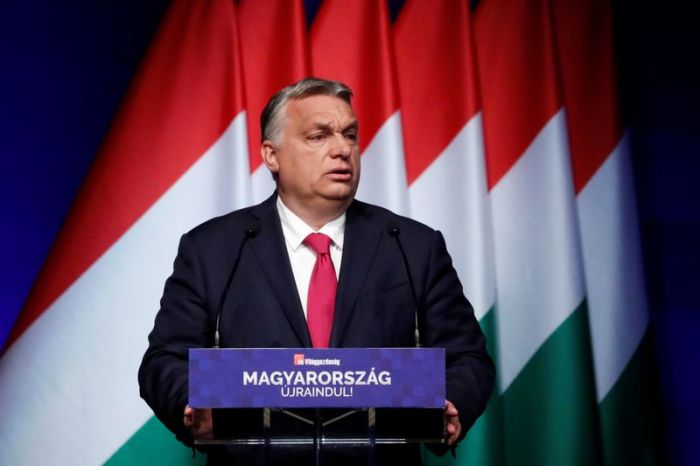By Jan Lopatka and Jason Hovet
PRAGUE (Reuters) -Czechs began voting on Friday in a closely-fought parliamentary election, with Prime Minister Andrej Babis seeking a second term despite criticism that he mismanaged the pandemic, drove up the national debt and pursued his own business interests in office.
Opinion polls put Babis’s populist ANO party only a few percentage points ahead of each of the two main opposition groups who have pledged to work together to oust him.
Babis, a billionaire businessman, has vowed to continue raising public sector wages and pensions, hoping to shore up his key voter bases.
His big spending policies, which he has stuck with despite a broad recovery from the coronavirus pandemic, mark a break from traditional Czech fiscal prudence, and the country’s debt is set to be among the fastest growing in Europe, albeit from a low base.
Prague voter Jiri Brynda, asked why he had cast his ballot for an opposition party, said: “It is a vote against populism.”
“Not to have everything for free as the other side promises, but let’s cut back spending responsibly so that our kids and other generations have bearable taxes (in the future),” said Brynda, a sales representative.
Voting, which is spread over two days, began at 2 p.m. (1200 GMT) and runs until 2 p.m. on Saturday.
The centre-right Together coalition and the progressive Pirates/Mayors have refused to work with Babis over what they say are unacceptable conflicts of interest. He is the founder of the Agrofert food, farming, chemicals and media empire, which employs more than 30,000 people in central Europe.
Babis says he met all legal obligations by putting the firms into trust funds in 2017 before becoming prime minister. But a European Commission audit determined otherwise and it has stopped paying development grants to the group.
Babis faced new allegations on Sunday of using opaque offshore structures to buy real estate in France before he entered politics. He has denied any wrongdoing.
POLICY CHANGES
The opposition also blame Babis for chaotic policy changes during the pandemic. COVID-19 has claimed more than 30,000 Czech lives, one of Europe’s worst per-capita death tolls.
“It’s being decided now… whether we kick-start the economy, start following global trends, or be a country without innovations and living on credit,” Pirate Party chief Ivan Bartos said as he cast his vote.
Babis has employed anti-migrant and anti-EU rhetoric in the campaign and has accused the Pirate/Mayors coalition of failing the country by supporting more European integration and eventual adoption of the euro.
However, the opposition includes a eurosceptic wing and its European policies remain unclear.
President Milos Zeman, 77, a Babis ally who appoints prime ministers under the constitution and plays a key role in post-election coalition talks, skipped the custom of voting publicly this time due to unspecified health issues and cast his ballot away from the media gaze at the presidential retreat outside Prague, his office said. [nL8N2R4292]
Babis will probably get the first shot at forming a government but may find it difficult to find coalition partners.
He may try to team up with the far-right Freedom and Direct Democracy Party, despite opposing its demands to approve legislation allowing for a referendum to leave the EU.
Victory for the opposition would bring an improvement in relations with Brussels by ending Babis’s conflict-of-interest disputes. It would also set the Czechs further apart from regional partners Hungary and Poland, which have been at loggerheads with the EU over democratic standards.
(Reporting by Jan Lopatka, Robert Muller and Jason Hovet; Editing by Hugh Lawson and Gareth Jones)





























